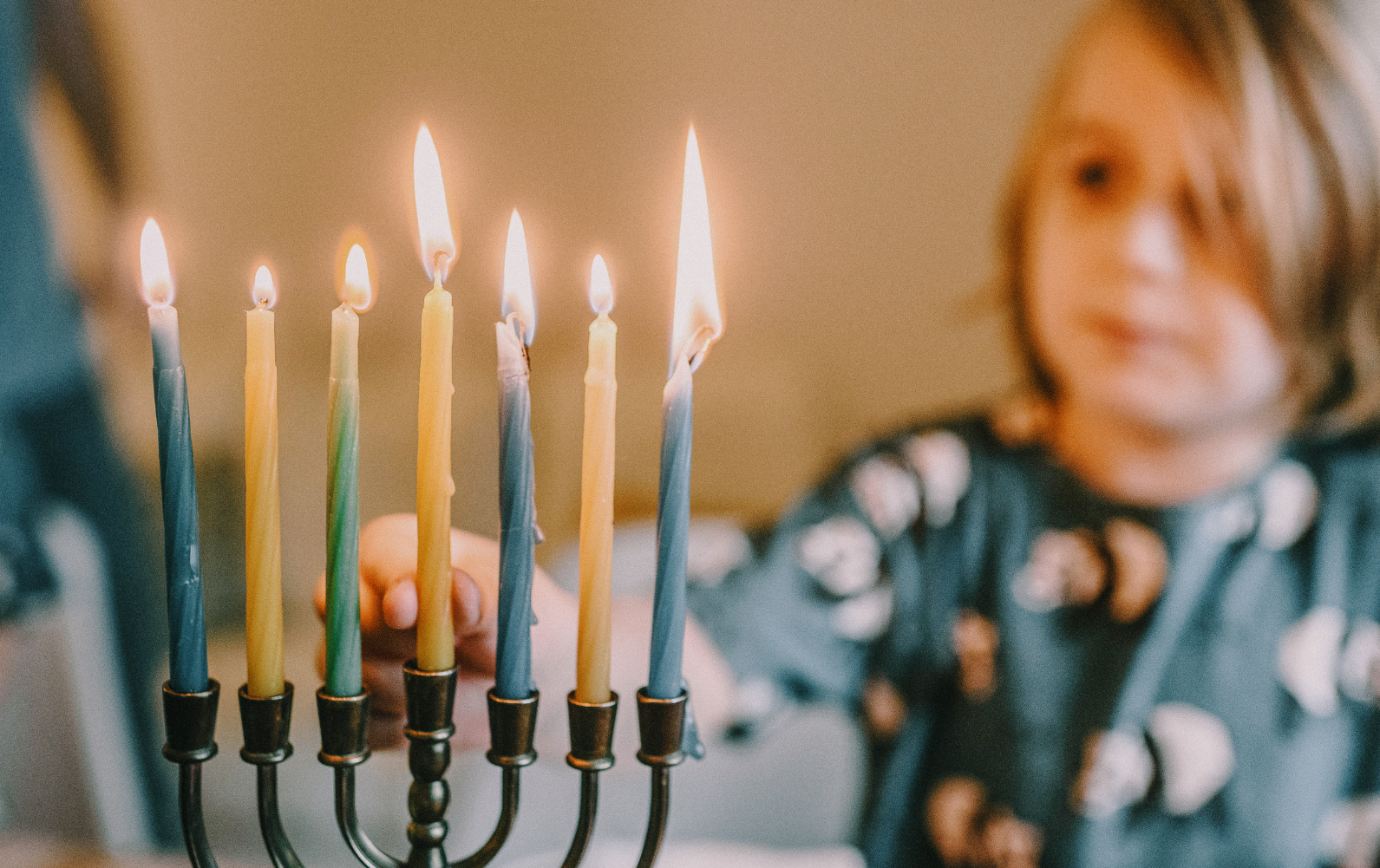When I teach young people the story of Chanukkah, I am often met with disbelief regarding the miracles popularly ascribed to this holiday.
After brief conversation I often note frustration and regret because these young people feel compelled to continue celebrating something they don’t absolutely believe in- a holiday with a storyline that is somewhat implausible.
Many express the wish that Chanukah made more sense. They tell me that the miracle of oil lasting when it should not have is akin to believing in Santa Claus, an equally absurd suggestion in their opinion.
To find meaning in this annual challenge, it seems we may have unintentionally reduced the primary meaning of Chanukah to the miracle of the oil lasting eight days and the victory celebration.
My teaching of the miracles takes a different slant. I offer what I hope is a more believable and relevant explanation intended to engage the imagination of young people, and give plausibility to a beautiful celebration of light and love.
First, the victory celebration. In days of old, the Jewish world faced the reality that Chanukah was primarily a Civil War. The victors were those that upheld the traditional Temple-based values, along with the ethics and morals of the teachings of Moses and the Sages. There was an opportunity at that time for the victorious side to easily create a holiday of triumph, which would perpetually maintain the losers- also Jewish- in disdain, and to degrade their humanity. Instead, they chose
to celebrate a Festival of Light, a call to the world that “to make light not war” would henceforth be the goal of their victory.
It’s a very powerful statement. Instead of focusing on the nuance of triumph and permitting it to only a small group of tradition-abiding Jews, the Maccabeans made the celebration of light available to everyone, equally.
We should be very proud of this moment in history in which lighting up the darkness was more important than shutting out those with whom we don’t agree. Light illuminates the way for everyone, ignoring politics, gender, race, creed, or denomination.
It turns out the first miracle of Chanukah is one in which human affirming values triumphed over religiously inspired vengeance.
The second miracle, the one about the oil, also needs to be reimagined. It holds no veracity for our young people, and the persistence of the narrative promotes a shallow understanding of Jewish life that fails entirely to grip mature imaginations, making Chanukah essentially a children’s celebration, only so long as they continue to believe the fable.
Yes, we have backfilled that emptiness with presents, food, games, and family time, but the essence of the holiday has been infantilized.
But not anymore. We have reconsidered the miracle of the oil that lasted for eight days when it was clearly only capable of lasting for one.
And here is the great innovation, which qualifies as a miracle:
In those days, at this time of year, during the restoration of the Temple after the war, a decision had to be made about lighting the seven branched candelabra.
Observance of the religious requirement was that the light must burn from dusk to dawn. However, with such a short supply of pure oil, they would consume the one day’s supply of oil in one day, and there would be none left for the rest of the days of the Temple’s rededication celebration.
Or they could modify the religious requirements and burn 1/8 of the oil on hand each day until a new supply was available, meaning that the amount of time in which the menorah was lit would be significantly less, but at least they would have light every day.
In our imagination, the miracle of oil was that it was split into eight parts, rather than pay absolute fealty to the religious requirement. Our ancestors were wise, and they modified the performance of the commandment so that it suited their human need to mark and celebrate days of light after so much spiritual darkness, especially as the winter solstice approached. This immediate and obvious remaking of the relationship between law and people is what the conflict of Chanukah was about in the first place – an irredeemably rigid interpretation of law and an equally inflexible acceptance of modern ideas regardless of how relevant or necessary.
Their innovation was actually a most loyal act to tradition.
The miracle of light as an antidote to triumphalism, and the miracle of abstracting the law so that it remains relevant and purposeful: both of these are worth celebrating.
Chanukah is a celebration of light, family, and food related events. It’s meant to be simple, and it is also an opportunity to promote what we call “eight nights of giving”, whether one gives to charity, to various members of family, chooses a mitzvah project across eight nights or eight projects. Chanukah is a concise and specific opportunity at the darkest time of year to bring light to so many. One does not have to perform grand acts of charity or undertake complicated campaigns to make a difference; even committing to call one family member each night, or write a card or note, or think of someone who could use some love… there are many ways to turn Chanukah into eight nights of giving.
Finally, don’t forget what we call “Joil” (the joy of foods made with oil), only one of the eight branches of the menorah, which represent eight different objectives and eight essential thoughts, when contemplating the meaning of Chanukah.
Celebration, joil, courage and heroism, miracles, illumination, family and togetherness, renewal, music, resilience and hope.
Please enjoy and do believe once again in the miracle of Chanukah.
Rabbi Yossi Sapirman is the Senior Rabbi of Beth Torah Congregation and the founder of Living Jewishly.
This essay was inspired by the Bnai Mitzvah students of the Year of Living Jewishly program.


0 Comments